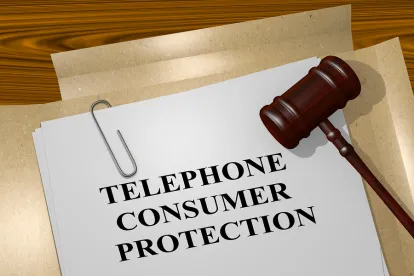When the Telephone Consumer Protection Act (TCPA) was enacted in 1991, most American consumers were using landline phones, and Congress could not begin to contemplate the evolution of the mobile phone. The TCPA defines Automatic Telephone Dialing System” (ATDS) as “equipment which has the capacity—(A) to store or produce telephone numbers to be called, using a random or sequential number generator; and (B) to dial such numbers.” 47 U.S.C § 227(a)(1). In 2015, the Federal Communications Commission (FCC) issued its 2015 Declaratory Ruling & Order (2015 Order), concerning clarifications on the TCPA for the mobile era, including the definition of “Automatic Telephone Dialing System” (ATDS) and what devices qualify. The 2015 Order only complicated matters further, providing an expansive interpretation for what constitutes an ATDS, and sparking a surge of TCPA lawsuits in recent years.
Consequently, several FCC-regulated entities appealed the 2015 FCC Order to the D.C. Circuit Court of Appeals, in ACA International v. FCC, No. 15-1211, Doc. No. 1722606 (D.C. Cir. Mar. 16, 2018). The D.C. Court concluded the FCC’s opinion that all equipment that has the potential capacity for autodialing is subject to the TCPA, is too broad. Although the FCC did say in its 2015 Order “there must be more than a theoretical potential that the equipment could be modified to satisfy the ‘autodialer’ definition”, the Court held that this “ostensible limitation affords no ground for distinguishing between a smartphone and a Firefox browser”. The Court determined that the FCC’s interpretation of ATDS was “an unreasonably expansive interpretation of the statute”.
Since the decision in ACA Int’l, courts have weighed in on the D.C. circuit court ruling and the status of the 2015 Order, sparking a circuit split over what constitutes an ATDS. The Second and Third Circuit have both narrowly interpreted the definition of an ATDS. In late June 2018, the Third Circuit held that, in light of ACA Intl’l, the TCPA should be interpreted as it was prior to the 2015 Order, limiting ATDS to a device with “present” capacity to function as an autodialer. The Third Circuit found that the plaintiff provided no evidence to show that an Email SMS Service had the present capacity to function as an autodialer.
Only a week later, the Second Circuit issued a similar opinion, narrowly interpreting the definition of ATDS, and rejecting a TCPA claim on grounds that the defendant could not point to any evidence that creates a genuine dispute of fact “as to whether the Email SMS Service had the present capacity to function as an autodialer by generating random or sequential telephone numbers and dialing those numbers.” It seemed like some consistency had begun to emerge in the courts post-ACA Int’l.
But then, in September, the Ninth Circuit stirred things up, with a sharp departure from the Second and Third Circuit decisions. The Ninth Circuit concluded that the “Textmunication System”, a “web-based” platform that sends text messages (a system of comparable nature to the Email SMS Service analyzed by the other circuit courts), created a “genuine issue of material fact” as to whether it qualified as an ATDS. The Court, thus, did not weigh in on whether the definition of ATDS was limited to devices with present capacity. Earlier this month a petition of writ of certiorari was filed with the U.S. Supreme Court, to the review the Ninth Circuit panel’s decision, but shortly after the parties reached a settlement agreement.
Given the circuit split over the definition of ATDS under the TCPA, the issue is ripe for the Supreme Court to address, but due to the recent settlement, we will have to wait a bit longer to hear from the Court. Just after, the Ninth Circuit ruling, the FCC sought comments from the public on the scope of the TCPA, including the ATDS definition. In the meantime organizations are advised to implement and update their telemarketing and/or automatic dialing practices to ensure TCPA compliance.




 />i
/>i
